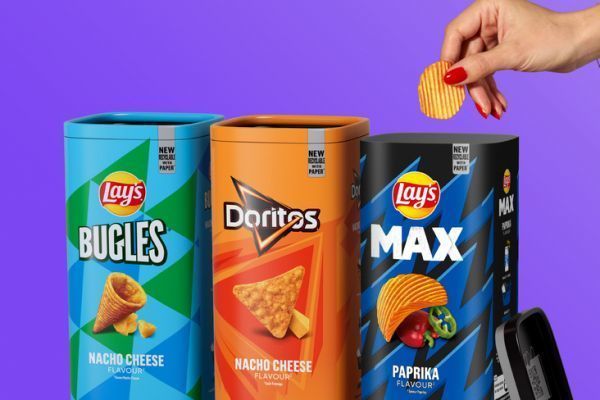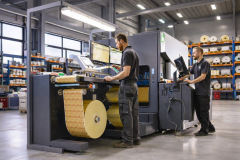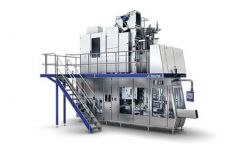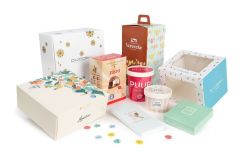Are potato chips going to come in cardboard boxes? PepsiCo has launched a new packaging format for several of its potato chip brands in the Netherlands and Belgium, marketed under the name SnackBox. The SnackBox, which complements PepsiCo's traditional range, is a rigid, resealable cardboard box for Doritos, Bugles and Lay's Max.
Unlike conventional plastic pouches, it features a stable rectangular shape, a wide opening and an integrated lid, made from recyclable fiber-based material. Pepsi also describes "silent packaging, practical for those times when you want to enjoy your snacks quietly, such as at a movie night" .
Rigid packaging in the flowpack world
From an industrial standpoint, the arrival of rigid packaging in a category dominated exclusively by flexible pouches (apart from the specific Pringles-type tube segment) changes the usual packaging configurations.
Unlike the plastic flowpack, which is formed, filled and sealed in-line at high speed, the SnackBox is based on a preformed box, filled in a vertical station, then resealed. This change of format implies adjustments in terms of equipment, speed and logistics, as the difference in material between a flowpack weighing around 3 g and a cardboard box is significant.
A launch accompanied by controversy over price
But this new packaging caused immediate controversy in the Netherlands. According to Foodwatch Nederland, the SnackBox is sold at the same retail price as the classic plastic bag, but contains 60 grams less product - a price increase of 76%. In some variants, such as Bugles, the box contains fewer chips and costs more. The organization refers to this as shrinkflation.
This criticism, picked up by the national media, led Delhaize, Aldi and Colruyt not to stock the SnackBox in Belgium. The manufacturer has not changed its price list, but has issued a press release emphasizing the added features and the fact that the classic bags will remain on the shelves.
Cardboard packaging for potato chips: will it soon be commonplace?
The launch of the SnackBox, despite its critics, represents a full-scale test for the introduction of recyclable rigid in the snack aisle. It raises questions about the profitability of a more premium format, consumer perception of added value, and the logistical compatibility of rigid in circuits optimized for flexible products. The question is clear: does rigid cardboard have a future in savoury mass-market applications?







